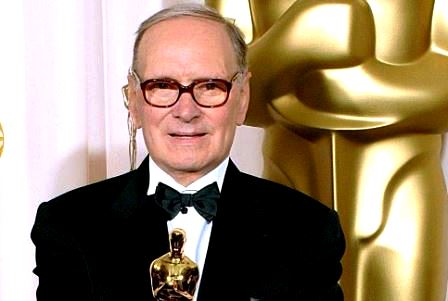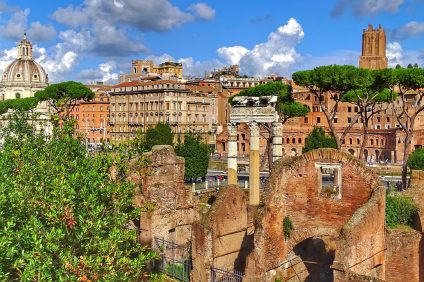In this article, the title of which is an anagram used for the essay of the same name by Sergio Miceli, I wanted to deepen the contribution of those who, I believe, have always represented the most important personality concerning the intricate, and increasingly elusive, dialogue between the language of cinema and that of music: Ennio Morricone.
Solid theoretical foundations have only recently been given to the analysis of the union between music and cinema. Ennio Morricone has carried out a task of rejuvenation in the Italian film music sector. He is a musician who can be defined as 'all-round' for his marked qualities of understanding and adaptation to the most distant musical directions, in which his style is always traceable. Music is a softener of space and time. In the long duel scenes of Sergio Leone's films (in which the characters do nothing but stand still like statues facing each other) the music of Ennio Morricone is precious to make such an immobilization of time acceptable.

A few 'reminiscent' notes of Once Upon a Time in the West to retrace in the unconscious an itinerary made up not only of grasslands, of the sun, but also of personal emotions linked to a fragment of a sequence. It would take me a whole night to melt the curiosity that Ennio Morricone's artistic collaborations suggest. In my opinion, a study on the entire production Morriconiana it implies a certain 'experimental' character. There are more than four hundred films to which the composer has donated his music. According to some specialists, groups such as Pet Shop Boys, Dire Straits, Rolling Stones, Bon Jovi, Guns N 'Roses and who knows how many others have declared themselves indebted to Morricone's language. My impression is that Morricone has lent his collaboration on many more occasions than is actually known. But I will limit myself to writing that dealing with a composer with such a rich personality 'obliges' to outline a global profile of the music of our time. It must be said, however, that today the sparse interviews and biographies available place greater emphasis on the 'cultured' Morricone, that is, that of excellent collaborations, the one that made Sergio Leone say "Now I can no longer even imagine my film without Ennio's music… ”. The one with Leone is a happy partnership, interrupted only by the untimely death of the director; shortly before the forced separation, the two will magnificently seal their relationship with the harrowing and extraordinary 'historical - psychological' epic of Once upon a time in America.
Once upon a time there was Ennio Morricone ...
Ennio Morricone was born on 10 November 1928 in Rome. The family lived for a long time exclusively from the profession of his father Mario, an esteemed trumpet player in entertainment orchestras, while only much later did his mother, Libera Ridolfi, start a small business in the textile trade in Rome. It is therefore presumable to believe that Morricone grew up in a family climate of a typically proletarian nature, in which life and work are intertwined in a close relationship of mutual dependence and are marked by an ethic of dignified industriousness. In fact, the initiation into music takes place not only thanks to the early manifestations of his nature - the first compositional attempts date back to around 1934 - but as a natural phase of preparation for a moment in which the son would have assumed the paternal roles, in the family as in work. . The nature of Morricon's roots leads us to believe that the handover between father and son would have taken place anyway, and that the vocation manifested so precociously only made an already marked destiny more acceptable.
With a little ink on the staff, Ennio Morricone entered history and hearts. A timid reference to the notes of the soundtrack of Sergio Leone's film is enough Once upon a time in America to get lost in the fog of a gangster New York. That pan flute, which recalls the Indian origins of America, is just a drop in the sea of music that Morricone has given to the cinema.
If it is true that cinema has used his talent, it is equally true that Morricone has used cinema to test his talent.
The Italian public discovered Morricone and immediately identified him with the music of For a bunch of dollars, whose direction is entrusted to Sergio Leone. Then he plunges into the Babylon of cinema, showing undoubted and uncommon survival skills. They follow Per qualche dollaro in più e The good, the bad and the ugly, titles belonging to the Western genre, again directed by Leone. Since then Morricone, like it or not, has been doubly labeled: as a soundtrack author and as a specialist in the Western genre with guaranteed returns. Over the course of his career he will sign something like twenty-seven comments for Western films, helping, in spite of himself, to consolidate the label, however erroneous and reductive. And here is Morricone who, remaining true to himself, resorts to rhythmic-melodic cells smaller and smaller, but capable of appearing unusual and simultaneously familiar even to the less 'educated' ear. Here then are the stubborn schizophrenics, mechanical only in appearance and therefore disturbing in their progress that is not always predictable. The fascination exercised by his music for films lies precisely in the singular coexistence of an all in all conventional system but, at the same time, made eccentric by small inconsistencies. Ennio Morricone, let me write it, represents a sort of guarantee seal, to be used to try to save a failed film or to enhance the characteristics of an ambitious product.




